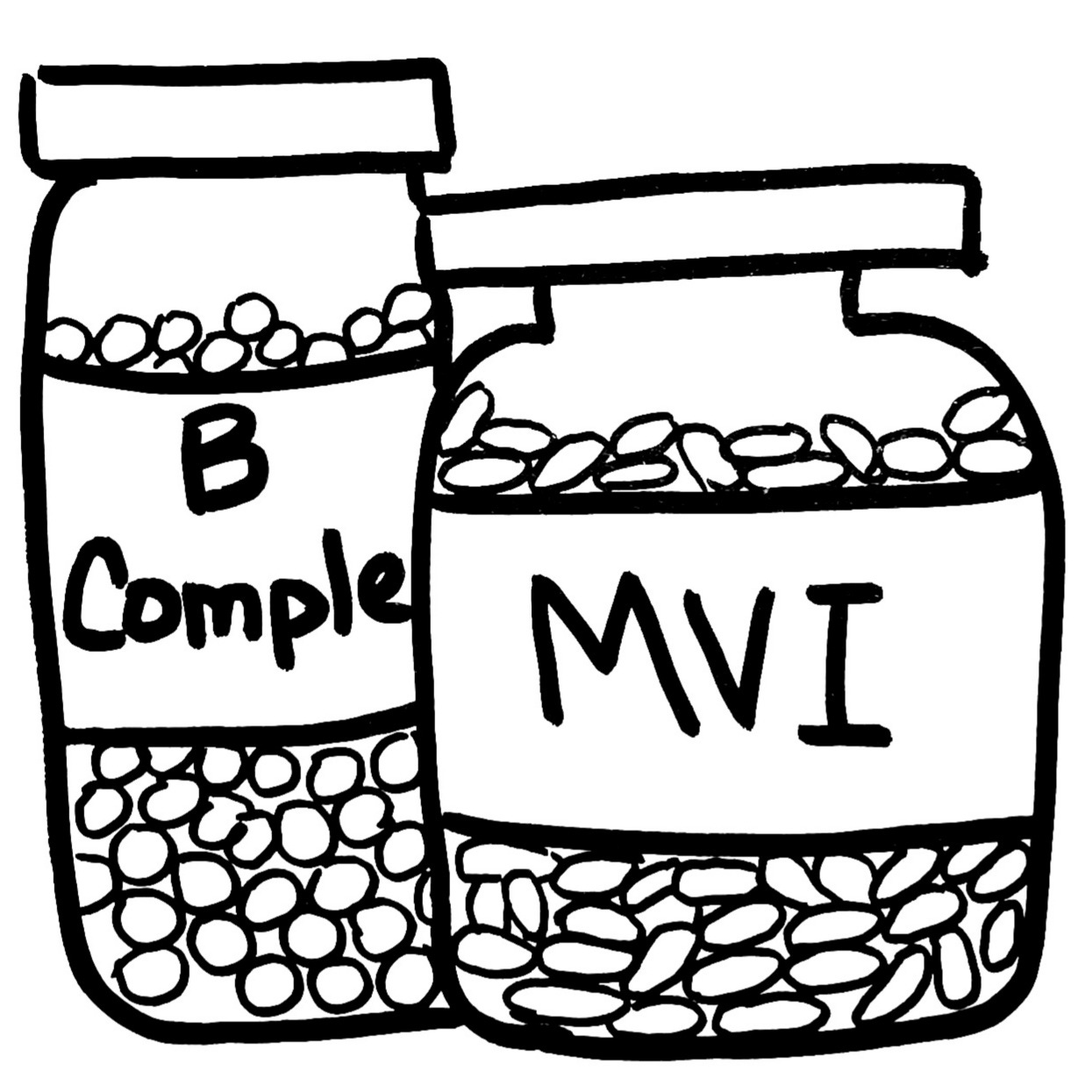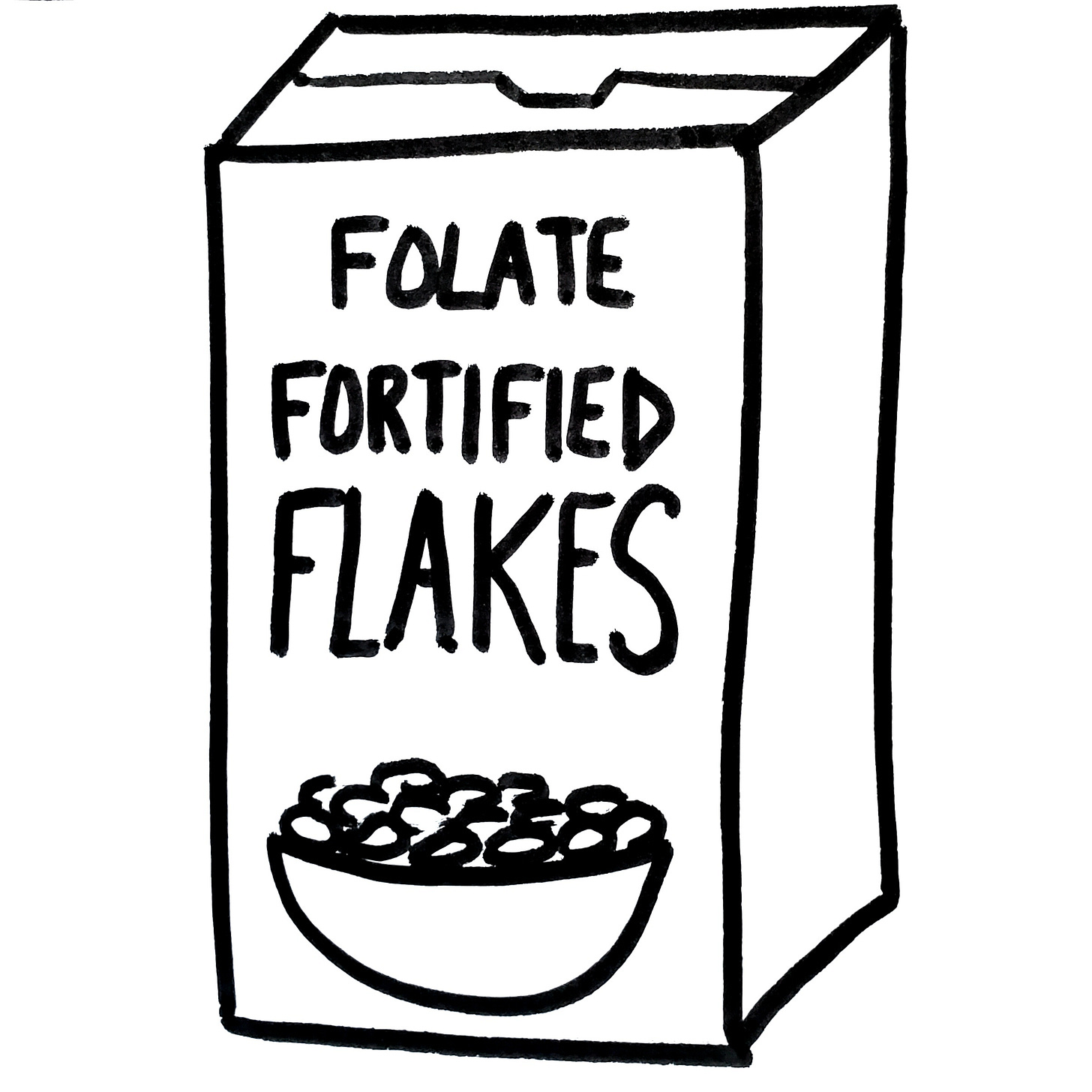Undermethylation Myths, MTHFR & The Great Folate Debate
70% of those with a mental health condition have a methylation imbalance. Of those, most are undermethylated (as opposed to overmethylated)
In case you haven’t yet met ….methylation….it’s an important biochemical process, in which methyl is added to particular molecules. Our ability to methylate impacts the expression of our genes, our ability to detoxify and our vulnerability to inflammation.
A methylation imbalance can contribute to chronic health issues like cardiovascular disease, autoimmunity, cancer and psychiatric conditions.
70% of those with a mental health condition have a methylation imbalance. Of those most are undermethylated, as opposed to overmethylated.
The Incidence of Undermethylation:
98% of those on the Autism Spectrum
95% of those with Antisocial Personality Disorder
90% of those with Schizoaffective Disorder
85% of those with Oppositional - Defiance
82% of those with Anorexia
50% of those with Depression
Undermethylation is the most common biochemical imbalance in depression
MTHFR (Methylenetetrahydrofolate Reductase) is considered the most important enzyme in the process of methylation. A variant on the gene for this enzyme COULD mean a less effective enzyme and thus undermethylation (not methylating well).
The most commonly prescribed supplement for those with a MTHFR variant is folate in one of it’s various forms (listed below).
MYTH #1 - Having a variant on the MTHFR gene is unusual. It is estimated that 30 to 40 percent of the American population has a variant at position C677T of this gene.
MYTH #2 - Having a MTHFR variant means you are undermethylated (UM). As the star player in methylation, MTHFR gets a lot of attention. BUT, there are other genes which can also have variants that decrease or increase methylation and can even off-set the impact of MTHFR. Separately, having a variant doesn’t mean that that gene won’t do it’s job. Trauma, toxicity, chronic stress, and/or our microbiome can impact genetic expression…and thus methylation….and thus the expression of other genes…As you can see, it gets complicated. Those of us trained through the Walsh Research Institute assess methylation by looking at symptoms and traits, with a whole blood histamine/WBH (methlyation breaks down histamine), or a methylation panel (as certain medications can lower the WBH ).
MYTH #3 - Everyone who has an MTHFR variant needs folate . While folate helps the methylation cycle, which is fabulous, it ALSO can, unfortunately, lower serotonin activity by way of an epigenetic (think “turning on and off of genes) mechanism. To oversimplify, folate impacts how tightly wound DNA is, which impacts the expression of certain genes. One of those genes encodes for serotonin re-uptake receptors. Dr. William Walsh (a pioneer in the field of methylation and brain disorders) found that most individuals with UM and brain symptoms have excess folate. Folate, for someone already low in serotonin activity, could further decrease serotonin activity and thus worsen depression and anxiety. UM - from this perspective - is a methyl folate imbalance (too little methyl and too much folate). Those with overmethylation (and thus high methyl and low folate) will thrive on additional folate.
This does run counter to the practice of many conventionally trained psychiatrists, who give folate (usually at very high doses) to those with an MTHFR variant on Gene Sight Testing. Similarly, many functional medicine doctors/practitioners use folate in those with MTHFR variants, independent of low serotonin symptoms, such as depression. All this to say, the impact of folate on serotonin activity is not well known.
MYTH #4 - Those with low serotonin undermethylation should NEVER have folate. If someone has a high homocysteine, we MIGHT use folate briefly to bring it down. This often isn’t necessary, as we have other tools such as B12, B6, Serine, and TMG. If we have to, we’ll use folate, just long enough to bring that homocysteine down, before treating UM with targeted nutrients. Separately, children with autism (though not necessarily those on the high functioning end of the spectrum), do seem to benefit from folate.
MYTH #5 - Multivitamins, including B Complex vitamins, are good for everyone. Almost all multivitamins or B complex vitamins contain some form of folate:
folic acid (a synthetic form of folate)
folinic acid
methyl folate dihydrofolate (DHF)
tetrahydrofolate (THF)
5, 10-methylenetetrahydrofolate (5, 10-MTHF)
5-methyltetrahydrofolate (5-MTHF).
Most of the adults and children that I see are UM with low serotonin symptoms. I am frequently taking people off multivitamins because of the folate. There are a few multivitamins and B-Complex vitamins that do not contain folate.
MYTH #6 - Everyone should eat a lot of leafy greens. A diet high in folate for someone with low serotonin UM (and thus most likely having too much folate already) isn't necessarily a good thing. Methyl, which we get from protein sources, is the priority, though supplements are also typically needed. I have seen several UM people who, because of their UM traits - their strong will and restricted eating patterns - were able to sustain a strict vegetarian diet that was low in protein (and thus low in methyl), which made them more rigid in their thinking, excessively disciplined and lacking enjoyment. Spinach, asparagus, and Brussels sprouts are also high. Avocado is up there too.
MYTH #7 - Cereal is the breakfast of champions. Most cereals, “healthy” ones included, are fortified with folate (often in the form of folic acid) and, therefore, could worsen low serotonin symptoms for someone who is undermethylated. I’m sure my pairing of a large glass of orange juice (also high in folate), with a bowl of flakes (back in the day), only added to my seeming need for lists with perfectly perfect boxes waiting eagerly to be checked off. Aside from cereal, many bread products, pasta, and rice are enriched with folic acid. This will be indicated on the labels, though not necessarily like this..
MYTH #8 - What’s good for the goose is good for the gander. I hope it is clear that we differ in our biochemical needs despite the blanket dietary and supplement recommendations out there.
MYTH #9 - If taking folate for the first three months of pregnancy is important, then taking it the entire pregnancy must be even better. The reason for the first 3 months (and prior if anticipating pregnancy), is to prevent neural tube defects - things like spina bifida. That’s important and recommended for all women (independent of methylation status). But after those first three months, are we needlessly exposing a fetus to high folate. We don’t know the methylation status of a fetus, but we do know that folate can impact the expression of certain genes. In 2016, Research from Johns Hopkins was able to, at least momentarily, bring this concern to public attention.
“The researchers found that if a new mother has a very high level of folate right after giving birth – more than four times what is considered adequate – the risk that her child will develop an autism spectrum disorder doubles.”
Moreover, …for a low serotonin UM mother, being on all that folate beyond that important first 3 months could be unnecessarily worsening or causing depression.
MYTH #10—The incidence of UM is relatively constant. In an upcoming newsletter, I’ll share updates from Dr. Walsh and the Walsh Research Institute, including the finding of a significant increase in UM (and a decrease in over-methylation) in the population and the role of the NMDA receptor in methylation imbalances.
Until Next Time,
Medical Disclaimer:
This newsletter is for educational purposes and not intended or implied to be a substitute for professional medical advice, diagnosis or treatment for either yourself or others, including but not limited to patients that you are treating (if you are a practitioner). Consult your own physician for any medical issues that you may be having.
Additional Resources
Nutrient Power - Heal Your Biochemistry and Heal Your Brain by William Walsh, PhD
Walsh Research Institute - Walsh trained practioners
Lunch with Dr. William Walsh - His Story, Discoveries & the Future of Nutrient-Based Psychiatry
Epigenetics, Methylation, MTHFR & the Brain, Made Easy...er
Undermethylation & Strengthening the Right Brain in a Left Brain World









March of Dimes and most medical providers recommend folic acid supplementation for up to a year preconceptually to prevent neural tube birth defects. I’m wondering if you support that recommendation
Wow I can so relate to all this. I'm homo for C677T and any form of folate makes me depressed 😔 I live in South Australia. Please tell me where a can get professional help 🙏